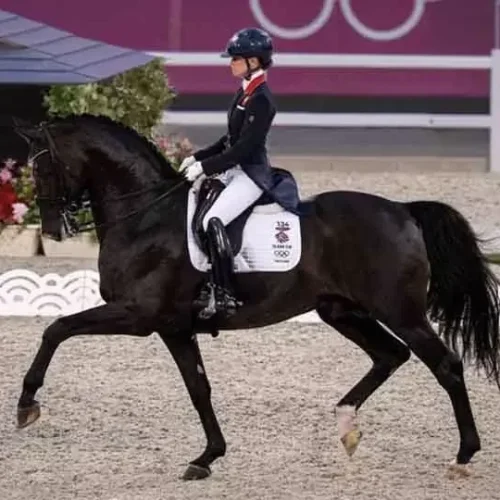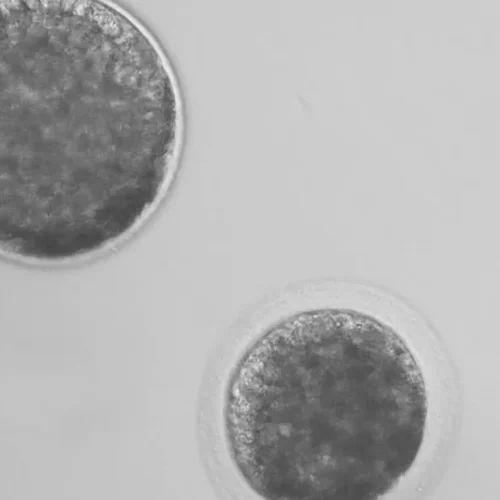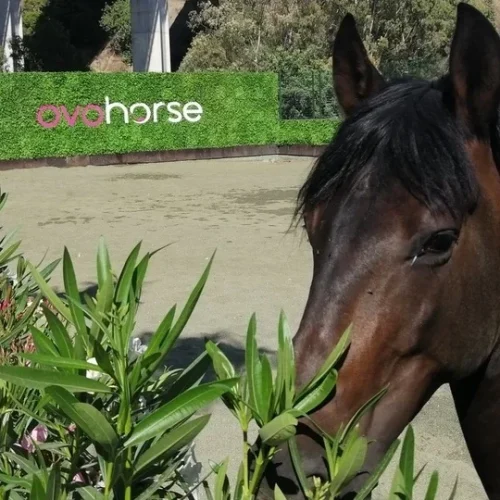ICSI (intracytoplasmic sperm injection) is an advanced technique that has positively revolutionized equine assisted reproduction. As its name suggests, it involves inserting a single sperm into each mature oocyte, which has been collected through follicular aspiration (OPU).
These injected oocytes are then cultured in the laboratory until they reach the embryo stage. Once the embryos are obtained, they are vitrified until they are ready to be transferred.
Vitrification and Warming at the Right Time
By vitrification, we refer to the ultra-rapid freezing technique that allows embryos to be preserved under optimal conditions without losing quality over time. This technique, carried out by highly qualified embryologists, enables both the veterinarian and the client to plan with complete precision, choosing the best timing and the ideal recipient.
Once these important factors are determined, warming is performed—a delicate process that reactivates the embryo for implantation under optimal conditions, thereby increasing the success rates of embryo transfer.
Preparation and Pregnancy Confirmation
After successfully completing the warming process, the veterinarian’s role comes into play to transfer the embryo into the synchronized recipient mare (day D4/D5 after ovulation).
Once the embryo has been transferred, it is time for its care to begin. The process starts with regular ultrasound monitoring to confirm correct implantation and assess the embryo’s development in the uterus, as well as the subsequent verification of the heartbeat.
This confirmation of implantation usually occurs between days 7 and 10 post-transfer, when early signs of pregnancy can be detected, providing the first indication of success.
Following this initial ultrasound, it is recommended to continue ultrasound monitoring every 10–14 days, especially during the first 6–8 weeks, to ensure proper embryonic development. Afterwards, fetal growth is monitored to guarantee healthy development throughout the entire gestation.
Our veterinarian will start progesterone treatment between 5–6 days post-transfer and, in some cases, will continue administration until 100–120 days of gestation, following the recommended schedule according to the prescribed product and dosage. This treatment is essential for maintaining an optimal uterine environment for embryo development, preventing a premature drop in hormone levels that could affect pregnancy continuity.
Welfare and Care of the Pregnant Mare
Good nutrition, as well as proper hydration, is essential for an animal’s life — and equally important for a successful pregnancy.
Providing high-quality feed and appropriate supplements to the pregnant mare ensures an optimal nutritional environment for the healthy development of the foal.
In addition, it is crucial to minimize the mare’s stress and provide her with a suitable environment. This includes allowing her as much free movement as possible and protecting her from extreme temperatures, thus ensuring her welfare… and that of the foal.
Postpartum Supervision and Plan
In the final weeks leading up to foaling, veterinarians increase their monitoring of the mare, always aiming to ensure a natural and successful birth. Once the foal is born, its health is assessed, as well as its ability to stand, which is a sign of vitality in the newborn foal.
The animal’s temperature, hydration, and feeding are also checked, along with its response to different stimuli. This entire postpartum plan is carried out under the close supervision and care of the professional veterinarians at Ovohorse.
Why Is Embryo Transfer via ICSI So Beneficial?
Assisted reproduction in equines offers numerous advantages and benefits. Thanks to these techniques, the reproductive productivity of mares increases considerably, while not interrupting the sporting career of donor mares, who can continue in their respective disciplines.
Furthermore, with vitrified embryos preserved in liquid nitrogen, they are ready to be transferred at any time of the year, allowing the client to plan the breeding of their new foal with complete flexibility and precision.
At Ovohorse, committed to animal care and welfare, we ensure the best conditions and care for pregnant mares to guarantee the highest chances of success in each transfer.
If you would like to learn more about the different laboratory techniques used in equine assisted reproduction, click here to visit our website.





